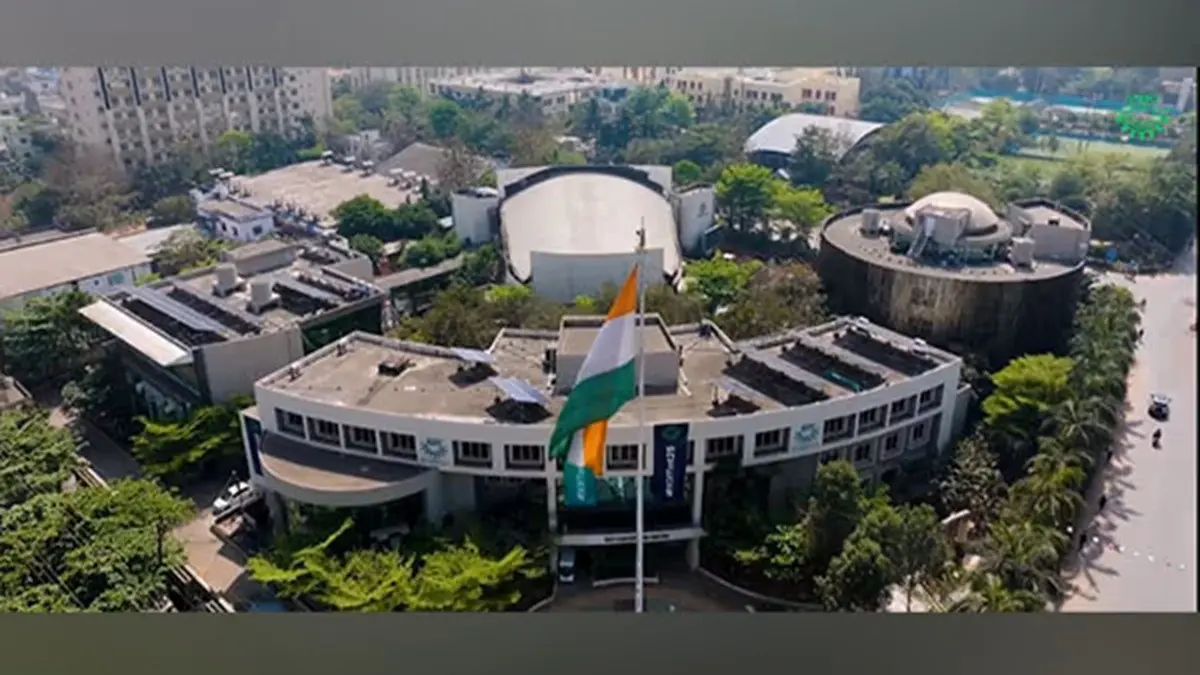Updated 6 May 2025 at 22:40 IST
Is KIIT Being Targeted? Skewed Narratives Raise Questions
In recent months, the Kalinga Institute of Industrial Technology (KIIT) has found itself at the center of intense scrutiny following a few tragic incidents.
- Initiatives News
- 4 min read

Bhubaneswar: In recent months, the Kalinga Institute of Industrial Technology (KIIT) has found itself at the center of intense scrutiny following a few tragic incidents beyond its control. While accountability and transparency are unquestionably critical, biased and sensational media narratives, coupled with, the multitude of concurrent investigations launched by various agencies, have led observers to question whether KIIT is being disproportionately targeted.
Biased Media: Fuelling the Narrative?
The role played by certain sections of the media, accused of amplifying negative narratives through sensationalist coverage, has complicated the scenario. Critics argue that some reports have gone beyond objective journalism, leveraging unverified, exaggerated, and occasionally baseless claims, leading to potential reputational damage.
A senior faculty member at KIIT, speaking on the condition of anonymity, remarked, "We support full transparency, but it’s disheartening to see certain media platforms intentionally skewing facts, presenting unverified allegations as established truths. This form of coverage diverts attention from real issues, like student welfare and institutional accountability, and instead, fosters unnecessary panic and misinformation." Several observers point to the institution's rapid ascent in India's educational landscape as potentially making it vulnerable to both exaggerated media narratives and undue institutional scrutiny. "The sheer scale and timing of these investigations, coupled with sensational media coverage, raise valid concerns about underlying agendas," says an academic expert closely following developments in Odisha's educational sector.
Advertisement
Following the tragic incident, KIIT has faced simultaneous investigations from several prominent bodies, including a high-level committee formed by the Odisha Government, an independent inquiry by the University Grants Commission (UGC), and a separate investigation by the National Human Rights Commission (NHRC). While multiple inquiries might underscore a thorough approach, experts suggest that such a concentrated effort from several powerful agencies at once is unusual, particularly given KIIT's swift response—suspending those allegedly responsible, issuing a public apology, and offering full cooperation. The intensity of these investigations has prompted discussions among academic observers, who speculate whether the institution is becoming a target due to factors unrelated to the actual incident.
KIIT’s Prominence: A Factor in Scrutiny?
Advertisement
Founded by educationalist and social entrepreneur Dr. Achyuta Samanta, KIIT has rapidly grown to achieve national and international acclaim for its robust academic infrastructure, industry partnerships, high placement records, and significant contributions to social initiatives. However, such rapid success has occasionally sparked competitive envy and rivalry, which could partly explain the intensity of scrutiny KIIT is now experiencing. Supporters of the institution suggest the recent scenario may be influenced by external political factors, academic competition, or even vested interests intent on tarnishing the university’s reputation. "Educational institutions of KIIT's stature often attract scrutiny, but this situation appears particularly amplified," stated an education sector analyst.
In response, KIIT has consistently affirmed its commitment to transparency and cooperation. A university spokesperson stated, "We are deeply committed to uncovering the truth and ensuring justice for Prakriti. We sincerely hope investigations will remain unbiased and objective, insulated from external pressures or hidden motives." KIIT students and faculty, meanwhile, have advocated for clarity and fairness, emphasizing the importance of addressing genuine concerns—student safety, mental health support, and crisis management—rather than being sidetracked by exaggerated accusations and media sensationalism.
The developments at KIIT highlight broader questions faced by educational institutions across India: How can transparency and accountability be balanced against the dangers of excessive or unjust scrutiny and media sensationalism? Observers caution that allowing investigations to become vehicles for hidden agendas or permitting media sensationalism to dictate public perception could severely damage institutional credibility and public trust in educational oversight mechanisms. As the investigations continue, it will be critical for all involved—investigative bodies, media organizations, educational institutions, and the public—to maintain a balanced, objective approach. Ensuring that inquiries are impartial and media coverage fair and factual will ultimately serve the interests of justice, transparency, and the broader educational community.
In conclusion, while KIIT rightly faces examination over recent events, the broader discussion must not overlook the possibility of disproportionate targeting and biased media narratives. As investigations unfold, stakeholders urge clarity, transparency, and impartiality, vital to upholding both justice and institutional integrity in India's evolving educational landscape.
Published By : Abhishek Tiwari
Published On: 6 May 2025 at 22:40 IST
